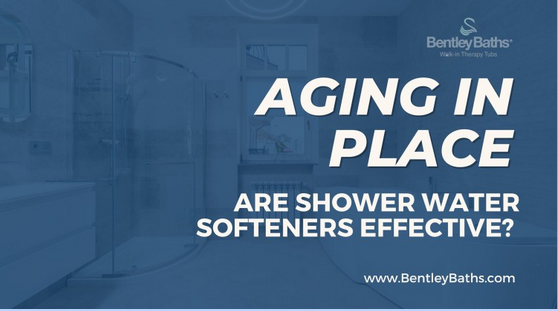ARE SHOWER WATER SOFTENERS EFFECTIVE? HOW YOU CAN SOFTEN YOUR SHOWER WATER.

Shower softeners work by employing various filtration methods to remove or reduce the concentration of minerals and other impurities in the water. They typically consist of a housing unit that attaches to the shower pipe or shower-head. Inside this unit, there are filter cartridges or elements that trap the minerals, allowing cleaner water to pass through.
Yes! Shower softeners can effectively reduce water hardness. Hard water is characterized by a high content of minerals such as calcium and magnesium. Using hard water in the shower can cause a variety of problems, including dry skin, flaky hair, and soap scum.
Shower water softeners attempt to solve these problems by removing or reducing the mineral content of the water. They usually use ion exchange or chemical processes to replace calcium and magnesium ions with sodium or potassium ions, which can have the unpleasant effects of hard water.
The first effectiveness of shower softeners may vary depending on the model and the water hardness in your area. Some people report a significant improvement in the condition of their skin and hair after installing a water softener, while others do not notice a significant difference.
It is important to note that shower water softeners are intended primarily for shower water and do not soften household water. If you have hard water problems elsewhere, such as your faucets, appliances, or laundry, you may need a whole-home water softener. In general, if you struggle with the unpleasant effects of hard water in the shower, a shower water softener can be an effective solution to alleviate these problems.
The following are ways to soften shower water.
- Shower Softener: Installing a shower softener is one of the most effective ways to soften the water, especially for your shower. These devices use various technologies such as ion exchange, filters, or magnets to reduce the mineral content and soften the water.
- Shower-head with water softener: Another option is to use a shower-head with a built-in water softener. These shower enclosures usually have filters or cartridges to help remove minerals and reduce water hardness.
- Vitamin C Shower Filter: A vitamin C shower filter is an alternative that helps neutralize chlorine and reduce exposure to hard water. It does not remove minerals such as calcium and magnesium, but improves the overall feel of the water and reduces the drying effect.
- Boiling and cooling: Boiling and cooling water before showering can bring about some minerals and temporarily soften the water. However, this method is not practical for regular use because it takes a lot of time and may not give long-term results.
- Water softening treatment: If you want a complete solution, consider a whole-house water softening system. These systems purify the water entering the home and provide soft water to all faucets, showers, and appliances.
It should be noted that the effectiveness of these methods may vary depending on the hardness of the water and the specific treatment options selected. We recommend testing your water hardness and consulting an expert to determine which method is best for your situation.
Who needs a fancy spa when you can have luxuriously soft shower water? #WaterSoftenerGoals
Eating to nourish both body and soul, because a happy tummy makes for a happy heart ❤️🥑 #selflove #goodfoodgoodmood








